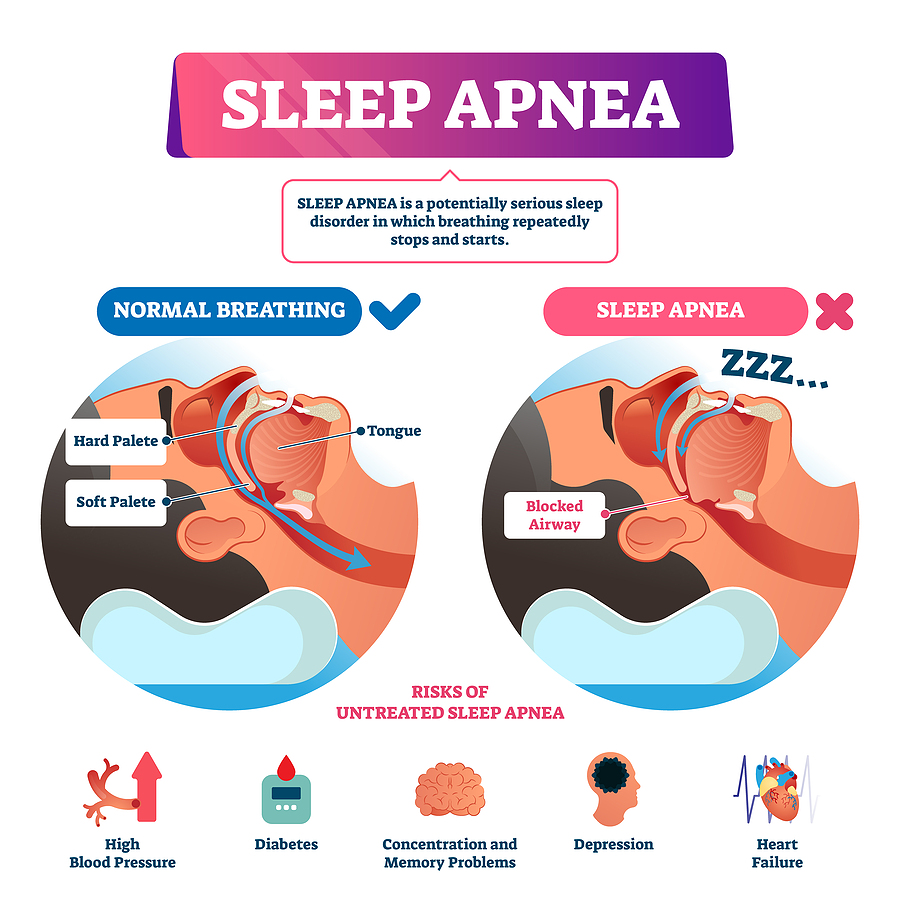Obstructive Sleep Apnea
Obstructive sleep apnea (OSA) happens when your airway gets blocked during sleep, causing breathing interruptions and poor-quality rest. This can impact your overall health and how you feel during the day. Untreated OSA can lead to heart and vascular disease, metabolic and endocrine disorders such as diabetes and obesity, mood disturbances, headaches, dry mouth, ear aches and even dizziness and progressive disorders such as Meniere's disease. Treatments for OSA can include lifestyle changes, Positive Airway Pressure therapy, or surgery if the problem is more severe.
To manage OSA, we begin with a thorough evaluation to find the best treatment for your specific needs. This assessment helps us understand the severity of your condition and tailor a plan that fits you. Whether it’s recommending lifestyle changes, fitting you for a CPAP machine, or exploring surgical options for more serious cases, our goal is to find what works best for you.
We can often do a sleep study in the comfort of your own home, although pediatric patients or adult patients with certain medical problems may still require an in lab study.
Sleep apnea can also be central, meaning it’s a brain problem, or mixed, meaning it’s both a signal and anatomical problem.

